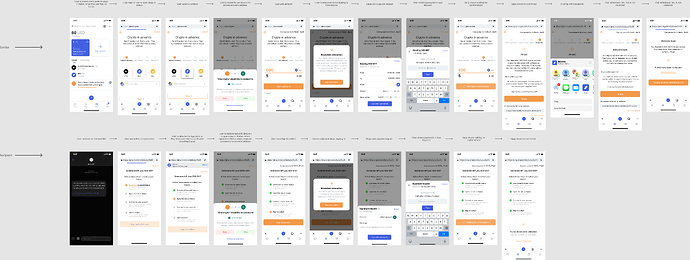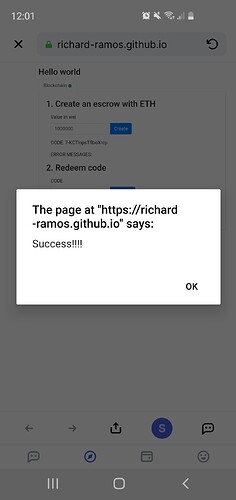People might be easier convinced to download and install Status if they know there’s a warm welcome waiting for them. Here’s a proposal for a DApp that allows gifting crypto to people who don’t have a wallet yet.
The idea is simple: Let experienced users fund an escrow and generate a unique withdrawal url. This is a personal, one-time use url. Funds are released to anyone who visits the url in a web3 browser and connects to the dapp with a wallet address that was not used to fund the escrow.
Criteria
- Reuse what we have. Limit development time
- Limit actions for a recipient to what’s familiar and reactive
Here’s what that can look like: Figma
System requirements
These are what I see as potential obstacles and I’d love to understand if what I’m proposing is feasible:
- Check if Status is installed on device from a webpage (@Ferossgp)
- Deeplinking to open dapp in Status browser (@andrey)
- Escrow release by any account address that is not the funder (@rramos)
- Release escrow to account that is not the funder without requiring gas (@rramos)
Note: There is no step where the sender confirms the recipients address. If the sender wants to control the release of funds they can choose not to send the url and ask the recipient to send them their address. However, this would be more or less the same a sending from any wallet in that case.
Use case
- Crypto owner wants to send crypto to someone who doesn’t have a wallet
Benefit
- Provide incentive to download and install Status
- Removes blocker of needing crypto to buy crypto without gas relay or abstraction
Scenario
- Bob wants to invite his friends to start using crypto
- Bob wants to invite his friends to start using Status and provide warm welcome
Future improvements
- Allow creation and viewing list of multiple withdrawal links
- Allow adding multiple currencies to a single withdrawal link. (e.g. Gift both ETH and SNT through one link)
- Notifications to update the funder
- Figure out how to create an entry point in invite friends flow:
Invite with crypto - UI, especially stepcounter for sender

